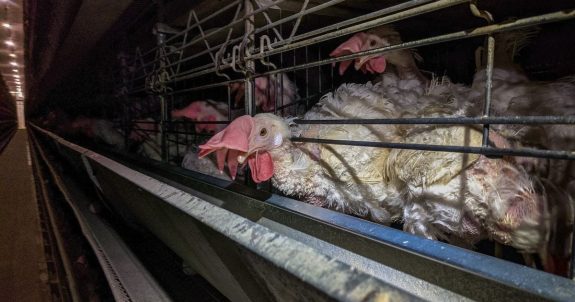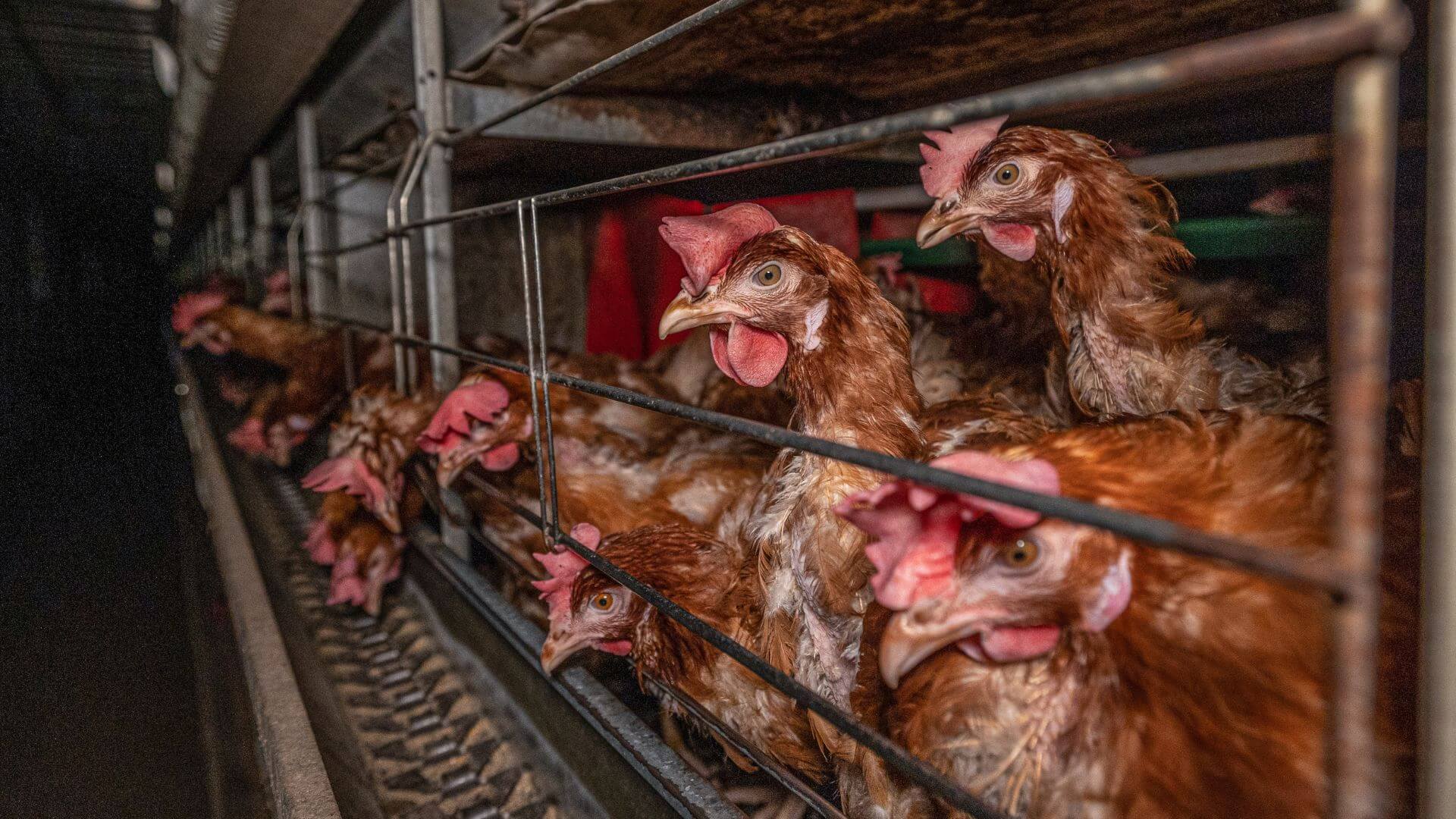Animal Justice is releasing a new report examining disease outbreaks on Canadian farms, called Animal Advocates, or Poor Farm Practices? Disease Outbreaks & Biosecurity Failures on Canadian Farms. The report is an update to a previous report that includes the latest statistics and data.
Based on data compiled by the Canadian Food Inspection Agency (CFIA) which monitors and investigates reportable disease outbreaks in Canada, the report reveals that standard farm practices and poor adherence to biosecurity protocols by farmers are regularly linked to illness and lethal diseases. While there are no documented cases of animal advocates causing or contributing to a disease outbreak in Canada, outbreaks caused by the actions of farm operators are numerous, well-documented, and have had devastating consequences for animals.
In recent years, animal agriculture lobby groups and legislators have attempted to crack down on citizens who seek to document and publicly expose poor animal welfare conditions inside farms, slaughterhouses, and animal transport trucks. Many jurisdictions are passing or considering dangerous so-called “agricultural gag” laws, (ag gag laws), that seek to cover up cruelty on farms by making it illegal to work undercover at a farm or slaughterhouse or document conditions inside transport trucks, or that create excessively harsh trespass penalties.
Governments and industry have tried to justify these ag gag laws by claiming they are necessary to prevent disease outbreaks on farms and protect the safety of the food supply. The stated concern is that animal advocates or other people approaching animals may introduce pathogens that will harm animals, farmers, food safety, and the economy.
But while biosecurity is important, concerns over animal advocacy activities appear to be misplaced. It is common for animals at intensive livestock operations to be kept in extreme confinement under highly stressful and crowded conditions, creating the perfect breeding grounds for the emergence and spread of disease. Many of the outbreaks investigated by the CFIA were traced back to troubling practices like sharing needles and equipment, failure to properly disinfect trailers, and exposure of farmed animals to virus-carrying wild animals.
Despite risks to animals, the public, and the economy, Canada doesn’t comprehensively regulate biosecurity on farms. The CFIA publishes voluntary biosecurity guidelines, developed in cooperation with the farm industry and government. But following these guidelines is not a legal requirement, and research has also shown that adherence to biosecurity protocols on farms is poor. Provincial laws tend to empower officials to respond to biosecurity hazards when they emerge, instead of setting out clear rules that farmers must follow to prevent disease.
Animal Justice recommends that government action to address biosecurity should focus on addressing the gaps and failures that have historically caused disease outbreaks. Ag gag laws that harshly punish whistleblowers and other citizens concerned about animal welfare are a distraction from the true biosecurity threats in the animal agriculture system.
The Report
Banner: Existence | We Animals Media



